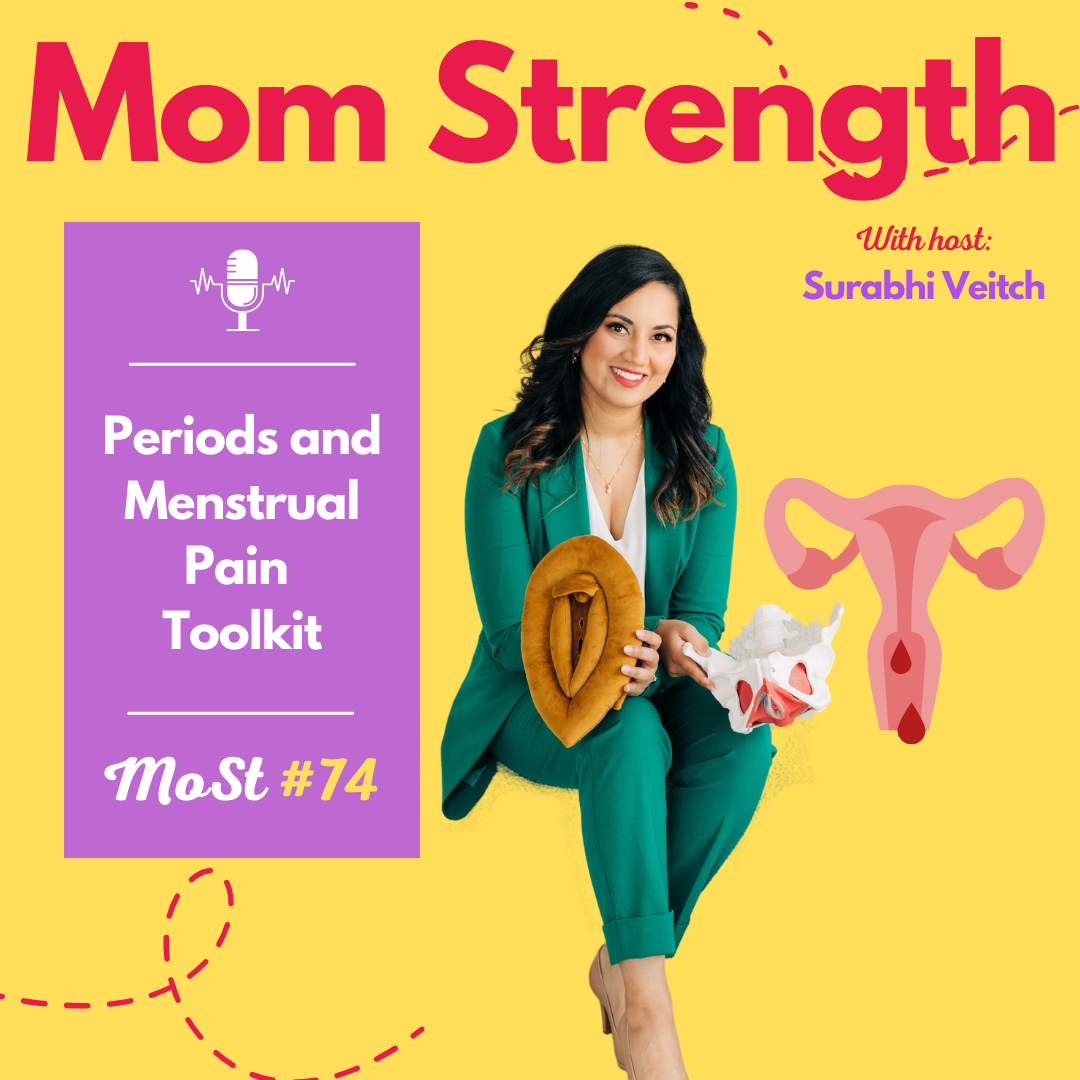74. Periods and Menstrual Pain Toolkit
Listen & Subscribe on: Apple Podcasts Spotify
Your period is your superpower!
Let’s dive into all things menstruation! From debunking the myth that painful periods are 'normal' to embracing the magic of your menstrual cycle, I’ll guide you through better period health. Learn about primary and secondary dysmenorrhea, tackle the shame and stigma surrounding periods, and discover how to treat your menstrual cycle like a cherished friend. Explore remedies and approaches to alleviate PMS and menstrual pain.
Dive deep into the connection between your beliefs and pain perception, and prepare your period toolkit to thrive throughout your entire cycle. From medications to nutrition, cravings to TENS machines, acupuncture to massages, and the choice of menstrual wear, I’ve got you covered. Uncover the benefits of nature time, exercise, orgasms, and learning to ask for help. Explore stress management techniques, including the wonders of pelvic physiotherapy. Discover the importance of self-care, mindfulness, and movement throughout your menstrual phases, and understand that women's health is not a one-size-fits-all concept.
15 things to have in your period toolkit
Medications for PMS
Nutrition for menstrual health (fats, seeds, proteins, carbs), reduce caffeine and drink adequate water
TENS machine for period pain (not an affiliate link, just a suggestion from Ortho Canada)
Acupuncture for menstrual pain
Massage for abdominal or pelvic pain
Change your menstrual wear aka “feminine hygiene” eg try cup, tampon, period underwear, pads
Breathe, Meditation and mindfulness – be where your feet are
Yoga: Asana, pranayama and yoga nidra
Plan ahead for different phases of menstrual cycle, look at calendar for next 4-5 weeks and plan more self-care and less stress in luteal/pre-menstrual phase. Women are not small men
Nature time
Movement – relaxation stretches, isometric exercises, ab exercises, glute med exercises, jogging, pelvic floor exercises, aerobic exercise, stretching – 8-12 weeks participation eg in my BASE fitness membership
Orgasms, snuggling and being taken care of
Do less and ask for help
Stress management
This episode is sponsored by Embodia https://www.embodiaapp.com/ - use code momstrength to save $20 off your first month’s Tier 3 membership. Click here to learn more about How I use Embodia as a Pelvic Physiotherapist!
Helpful Links:
Strength and mobility workouts to support your menstrual health: sign up for my BASE fitness monthly membership
Pelvic physiotherapy (virtual or in-person in Toronto) to manage period pain and menstrual symptoms
Mom Strength Episode 33: Polycystic Ovarian Syndrome (PCOS) with Dr. Whitney Baxter
TENS machine from Ortho Canada (not an affiliate link, just a suggestion)
Connect with Surabhi:
Website: https://www.thepassionatephysio.ca
-
4:22: Periods are normal
6:00: Primary dysmenorrhea
7:40: What’s the big deal with painful periods?
9:20: Secondary dysmenorrhea
10:00: Painful periods are not normal
10:45: Shame and stigma around periods
12:10: Periods are a blessing
13:05: Treat your period like a friend – with kindness and respect
16:15: Medications for PMS
18:03: Nutrition for menstrual health
20:25: How your beliefs impact pain
21:45: Preparing your period toolkit
22:15: Period cravings
23:45: TENS machine for period pain
26:12: Acupuncture for menstrual pain
26:45: Massage for abdominal or pelvic pain
28:22: Change your menstrual wear aka “feminine hygiene” eg try cup, tampon, period underwear, pads; dealing with neurodivergence/ADHD
31:30: Breathe, Meditation and mindfulness – be where your feet are
34:30: Yoga
36:14: Think of supporting your entire cycle rather than just your period bleed
37:34: Plan ahead for different phases of menstrual cycle, look at calendar for next 4-5 weeks and plan more self-care and less stress in luteal/pre-menstrual phase
40:15: Women are not small men
41:25: Nature time
41:45: Movement – relaxation stretches, isometric exercises, ab exercises, glute med exercises, jogging, pelvic floor exercises, aerobic exercise, stretching – 8-12 weeks participation eg in my BASE Fitness Membership
42:00: Reduce caffeine and drink adequate water
43:31: Orgasms, snuggling, and being taken care of
45:15: Do less and ask for help
46:10: Stress management
50:54: Pelvic physiotherapy

